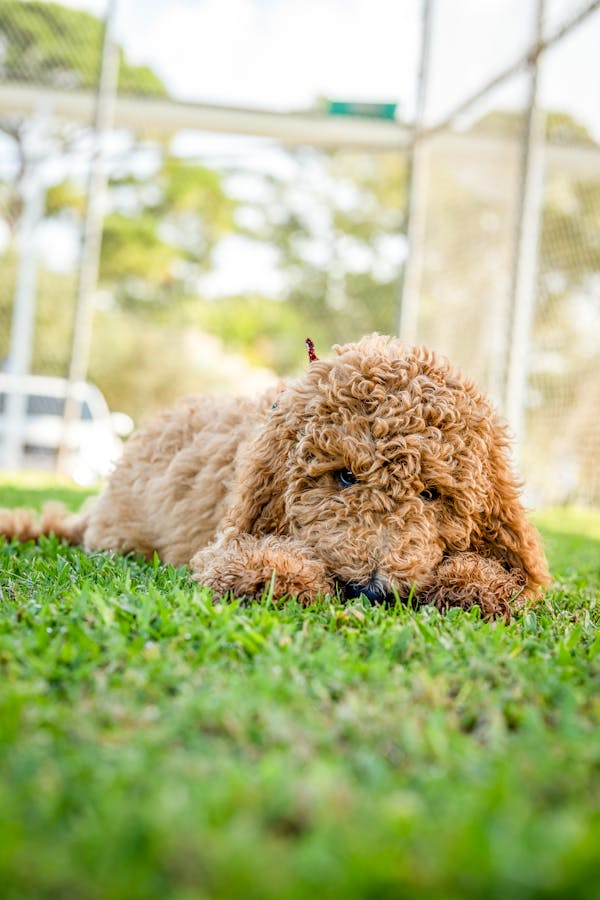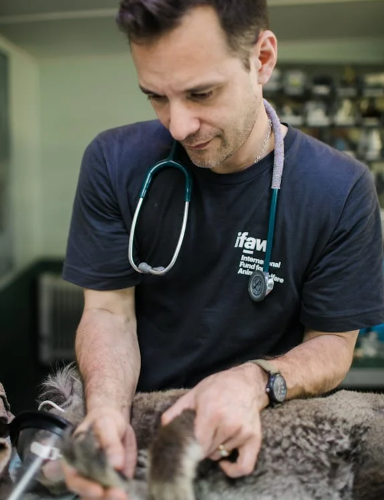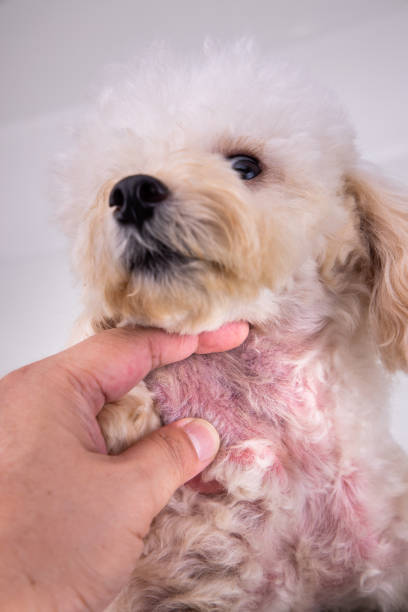Common Health Concerns in Doodle Breeds and Prevention Tips
Doodle breeds, such as Labradoodles and Goldendoodles, have gained immense popularity for their charming personalities and low-shedding coats. While these mixed breeds often inherit desirable traits from their parent breeds, they may also be prone to certain health issues commonly seen in their lineage. As responsible doodle owners, understanding these common health concerns and implementing preventive measures can help ensure a long, happy, and healthy life for your beloved furry companion. In this article, we’ll explore some of the most prevalent health concerns in doodle breeds and offer valuable prevention tips to keep your doodle in optimal health.
Holly and Hugo is an online institution which offers excellent courses for pet owners who desire to provide adequate care for their pets. Animal care entrepreneurs will also benefit greatly from our courses, as it will aid you in providing five-star service to your clients and their beloved pets. From food to training to grooming to animal psychology, we offer online courses led by experts so that you can rest easy knowing that your pets are living their best lives. Visit here.
Common Health Concerns in Doodle Breeds and Prevention Tips
This entails:
1. Hip Dysplasia
Hip dysplasia is a common orthopedic condition seen in many large and medium-sized dog breeds, including doodles. It occurs when the hip joint develops abnormally, leading to instability and degeneration over time. To help prevent hip dysplasia in doodles, consider the following:
- Choose a reputable breeder: Select a breeder who prioritizes health and conducts health screenings on their breeding stock to reduce the risk of hereditary conditions like hip dysplasia.
- Maintain a healthy weight: Excess weight can exacerbate hip dysplasia in doodles, so it’s essential to keep your furry friend at a healthy weight through a balanced diet and regular exercise.
- Provide joint support: Consider adding joint supplements such as glucosamine and chondroitin to your doodle’s diet to support healthy joint function and reduce the risk of hip dysplasia.
2. Allergies
Doodle breeds are susceptible to allergies, including environmental allergies (atopy), food allergies, and flea allergies. Symptoms may include itching, redness, skin infections, and gastrointestinal upset. To prevent allergies in your doodle:
- Identify and avoid triggers: Work with your veterinarian to identify and avoid potential allergens that may trigger allergic reactions in your doodle, such as pollen, dust mites, certain foods, or flea bites.
- Maintain good hygiene: Regular grooming, including bathing and brushing, can help remove allergens from your doodle’s coat and skin, reducing the risk of allergic reactions.
- Consider dietary modifications: If your doodle has food allergies, consider switching to a hypoallergenic or limited ingredient diet to minimize exposure to potential allergens.
3. Ear Infections
Doodle breeds, particularly those with floppy ears, are prone to ear infections due to their ear structure and tendency to trap moisture and debris. To prevent ear infections in your doodle:
- Keep ears clean and dry: Regularly clean your doodle’s ears with a dog-specific ear cleaner to remove wax, dirt, and debris, and ensure they are thoroughly dried after bathing or swimming.
- Monitor for signs of infection: Keep an eye out for symptoms of ear infections, such as redness, swelling, odor, discharge, or excessive scratching, and seek veterinary care promptly if you suspect an issue.
Holly and Hugo is an online institution which offers excellent courses for pet owners who desire to provide adequate care for their pets. Animal care entrepreneurs will also benefit greatly from our courses, as it will aid you in providing five-star service to your clients and their beloved pets. From food to training to grooming to animal psychology, we offer online courses led by experts so that you can rest easy knowing that your pets are living their best lives. Visit here.
4. Dental Disease
Doodle breeds are also prone to dental disease, including periodontal disease, tartar buildup, and tooth decay. To maintain your doodle’s oral health:
- Brush your doodle’s teeth regularly: Get into the habit of brushing your doodle’s teeth daily or as recommended by your veterinarian to remove plaque and prevent tartar buildup.
- Provide dental chews and toys: Offer dental chews, toys, or treats designed to promote oral health and reduce plaque and tartar accumulation.
5. Eye Problems
Certain doodle breeds may be predisposed to eye problems such as progressive retinal atrophy (PRA), cataracts, and cherry eye. To protect your doodle’s vision:
- Schedule regular eye exams: Have your doodle’s eyes checked by a veterinarian regularly to detect any potential issues early and initiate appropriate treatment.
- Maintain good hygiene: Keep your doodle’s eye area clean and free of discharge or debris, and seek veterinary care if you notice any abnormalities or changes in their eyes.
Holly and Hugo is an online institution which offers excellent courses for pet owners who desire to provide adequate care for their pets. Animal care entrepreneurs will also benefit greatly from our courses, as it will aid you in providing five-star service to your clients and their beloved pets. From food to training to grooming to animal psychology, we offer online courses led by experts so that you can rest easy knowing that your pets are living their best lives. Visit here.
Conclusion
While doodle breeds bring immense joy and companionship into our lives, it’s essential to be proactive in addressing and preventing common health concerns they may face. By understanding the risk factors for conditions such as hip dysplasia, allergies, ear infections, dental disease, and eye problems, and implementing preventive measures such as proper breeding practices, weight management, allergen avoidance, regular grooming, dental care, and veterinary check-ups, you can help ensure your doodle enjoys a long, happy, and healthy life by your side. With love, attention, and proactive care, you can provide your furry companion with the best possible chance at a vibrant and fulfilling life.
Formal Affiliate Disclosure
We at Doglinked are highly regarded to be a significant affiliate for great products. As a result, we are paid a commission if you use one of these links to purchase a membership. You don’t, however, have to pay more for this. You may relax knowing that the information given here is reliable and accurate.







